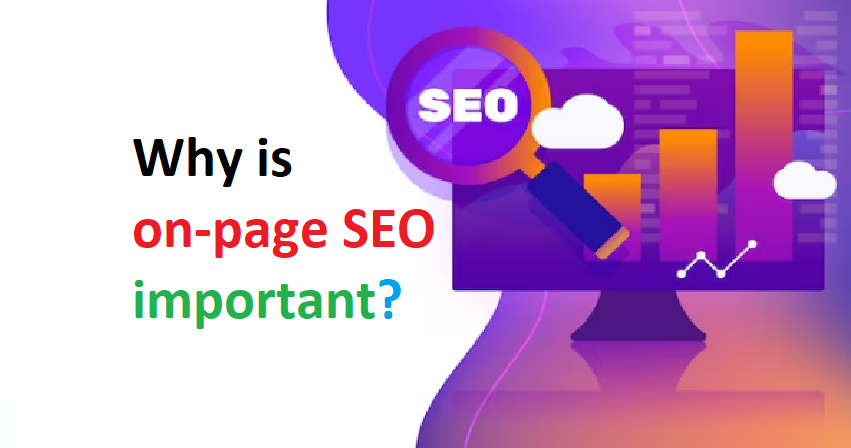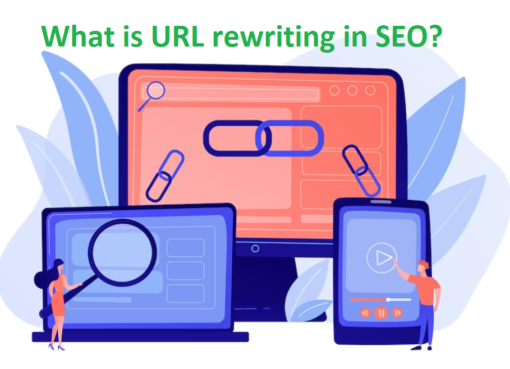Why is on-page SEO important?

1. Introduction
In the ever-evolving world of digital marketing, search engine optimization (SEO) is a crucial aspect of ensuring online success. Among the various components of SEO, on-page optimization plays a vital role. It focuses on optimizing individual web pages to improve search engine rankings and attract organic traffic. In this article, we will explore the importance of on-page SEO and why it is essential for businesses striving to thrive in the digital landscape.
2. Understanding On-Page SEO
On-page SEO refers to the practices and techniques implemented directly on a website’s web pages to optimize their visibility and relevance to search engines. It involves various elements such as keyword optimization, meta tags, content structure, internal linking, and mobile-friendliness. On-page SEO ensures that a website’s pages are well-structured, easy to navigate, and provide valuable information to both search engines and users.
3. The Significance of On-Page SEO
4. Improved Search Engine Visibility
On-page SEO plays a crucial role in improving a website’s search engine visibility. By implementing relevant keywords, optimizing meta tags, and structuring content effectively, on-page SEO signals to search engines what a page is about and increases its chances of ranking higher in search engine results pages (SERPs). Improved visibility leads to increased organic traffic and potential conversions.
5. Enhanced User Experience
A well-optimized website provides a positive user experience. On-page SEO practices such as clear navigation, concise URLs, and easy-to-read content enhance user engagement and encourage visitors to explore the website further. By improving user experience, businesses can increase user satisfaction, reduce bounce rates, and improve overall conversion rates.
6. Targeted Keyword Optimization
On-page SEO allows businesses to strategically optimize their web pages for specific keywords and phrases relevant to their products, services, or industry. By conducting thorough keyword research and incorporating these keywords naturally into page titles, headings, and content, businesses can increase their chances of ranking higher for targeted search queries.
7. Content Relevance and Quality
High-quality and relevant content is a crucial aspect of on-page SEO. By creating informative, engaging, and valuable content, businesses can establish their authority, provide value to their target audience, and attract organic traffic. On-page optimization ensures that the content is properly structured, includes relevant keywords, and offers a seamless reading experience.
8. Increased Organic Traffic
One of the primary goals of on-page SEO is to attract organic traffic. When a website ranks higher in search engine results for relevant keywords, it receives more visibility and exposure to potential visitors. By optimizing various on-page elements, businesses can improve their website’s chances of appearing in front of their target audience, leading to increased organic traffic and potential customer acquisition.
9. Competitive Advantage
In today’s competitive online landscape, businesses need every advantage they can get. On-page SEO provides an opportunity to stand out from the competition. By optimizing their web pages for relevant keywords, providing valuable content, and delivering an exceptional user experience, businesses can outperform their competitors and establish themselves as industry leaders.
10. On-Page SEO Best Practices
To achieve optimal results with on-page SEO, businesses should follow best practices. Here are some essential techniques:
11. Keyword Research and Optimization
Thorough keyword research helps identify the terms and phrases users use to search for specific information. By incorporating these keywords strategically throughout the content, headings, and meta tags, businesses can improve the relevance and visibility of their web pages.
12. Title Tags and Meta Descriptions
Optimizing title tags and meta descriptions is crucial for on-page SEO. These elements provide concise summaries of web page content to search engines and users. By incorporating relevant keywords and compelling descriptions, businesses can improve click-through rates and search engine visibility.
13. URL Structure and Optimization
A clear and concise URL structure contributes to better user experience and search engine visibility. Optimized URLs with relevant keywords and proper hierarchy make it easier for search engines to understand the page’s context and improve its chances of ranking higher.
14. Heading Tags and Content Structure
Properly utilizing heading tags (H1, H2, H3, etc.) and structuring content helps organize the information and improve readability. By using relevant keywords within heading tags and creating a logical hierarchy, businesses can enhance on-page optimization.
15. Optimized Internal Linking
Strategic internal linking helps users navigate a website and allows search engines to discover and index more pages. By linking related content within a website, businesses can distribute link authority and improve the visibility of important pages.
16. Image Optimization
Optimizing images by providing descriptive alt tags, compressing file sizes, and using appropriate file formats enhances both user experience and search engine visibility. Well-optimized images contribute to faster page load times and can appear in image search results.
17. Mobile-Friendliness
In an increasingly mobile-centric world, optimizing web pages for mobile devices is crucial. Responsive design, mobile-friendly layouts, and fast load times on mobile devices are essential for delivering an optimal user experience and improving search engine rankings.
18. Page Speed Optimization
Page load speed is a critical factor in both user experience and search engine rankings. Optimizing code, compressing files, and leveraging caching techniques contribute to faster page load times and better overall website performance.
19. Measuring On-Page SEO Success
To gauge the effectiveness of on-page SEO efforts, businesses can utilize various tools and metrics. Tools like Google Analytics and Google Search Console provide valuable insights into website traffic, user behavior, keyword rankings, and other performance indicators. Monitoring these metrics allows businesses to identify areas for improvement and make data-driven decisions to enhance their on-page optimization strategies.
20. Conclusion
On-page SEO is a fundamental aspect of digital marketing that businesses cannot afford to overlook. By implementing best practices, businesses can improve their search engine visibility, enhance user experience, attract organic traffic, and gain a competitive advantage. Through targeted keyword optimization, high-quality content, and optimization of various on-page elements, businesses can position themselves for success in the online landscape.
FAQs
How long does it take to see results from on-page SEO efforts?
The timeline for seeing results from on-page SEO can vary depending on various factors such as website authority, competitiveness of keywords, and the frequency of content updates. It is important to maintain consistency and monitor performance to assess the effectiveness of on-page optimization efforts.
Can on-page SEO alone guarantee top search engine rankings?
While on-page SEO is crucial for improving search engine rankings, it is only one piece of the SEO puzzle. Off-page factors like backlinks, social signals, and overall website authority also play significant roles. A holistic approach that combines on-page and off-page optimization is recommended for maximizing search engine visibility.
How often should I update my website’s content for on-page SEO?
Regularly updating your website’s content can positively impact on-page SEO. Fresh and relevant content signals to search engines that your website is active and provides up-to-date information. The frequency of updates may vary depending on your industry and target audience, but aim for regular updates to keep your content fresh.
Are meta tags still relevant for on-page SEO?
Yes, meta tags, including meta titles and meta descriptions, are still relevant for on-page SEO. They provide concise information about web page content to search engines and users, influencing click-through rates and search engine rankings. Optimizing meta tags with relevant keywords and compelling descriptions is important for on-page SEO.
Can on-page SEO benefit local businesses?
Absolutely! On-page SEO techniques can be tailored to target local search rankings. Optimizing meta tags, content, and incorporating location-specific keywords can significantly improve visibility in local search results, helping local businesses attract relevant traffic and potential customers.
Related Articles
Free USA Business Listing Sites List 2023
Guest Posting Sites List 2023, Updated
Free Profile Creation Sites List 2023
Dofollow Social Bookmarking Sites 2023




Leave a Comment